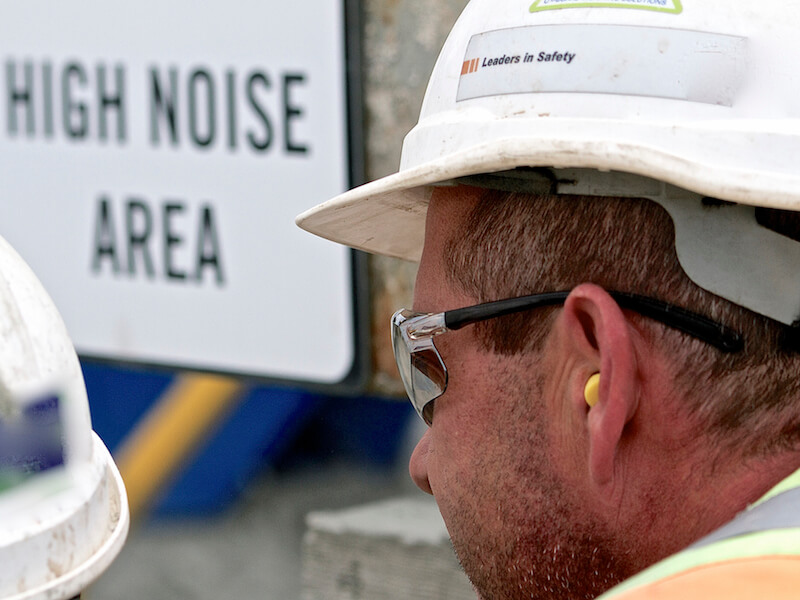
A noisy workplace isn’t all that great for your ears (or your focus, for that matter). Even modest noise, when experienced for many hours a day, can start to undermine the health of your hearing. This is why questions like “what hearing protection do I need?” are worth asking.
It isn’t common knowledge that numerous levels of hearing protection are available. But when you take a moment to think about it, it makes sense. A truck driver won’t need the same amount of protection that a jet engine mechanic will.
Hearing Damage Levels
The standard rule of thumb is that 85 decibels (dB) of sound can begin harming your ears. We aren’t really used to considering sound in decibels (even though that’s how we calculate sound – it’s just not a figure we’re used to putting into context).
When you’re sitting in your car in city traffic, that’s approximately 85 decibels. That’s not a big deal, right? Wrong, it’s a big deal. At least, it’s a biggie after several hours. Because it’s not just the loudness of the noise that you need to be aware of, it’s the duration of exposure.
Common Danger Zones
It’s time to consider hearing protection if you are exposed to noise at 85 dB or more for 8 hour days. But there are a few other important thresholds to take note of. If you’re exposed to:
- 90 dB (e.g., lawnmower): Anything above four hours is considered damaging to your hearing.
- 100 dB (e.g., power tools): Anything above one hour will be damaging to your hearing.
- 110 dB (e.g., leaf blower): Injury to your hearing happens after 15 minutes of exposure to this noise level.
- 120 dB (e.g., rock concert): If your exposed to this noise level for any amount of time, your hearing can be harmed.
- 140 dB (e.g., jet engine): Any exposure can lead to damage and may even cause immediate pain.
You’ll want the ear protection you wear to be sufficient to bring the decibel level below that 85 dB level, particularly if you’re exposed to those sounds for any duration.
Find a Comfortable Fit
The effectiveness of hearing protection is quantified by something called a Noise Reduction Rate, or NRR. Outside sound will be progressively quieter the higher the NRR.
It’s incredibly important that you pick hearing protection with a high enough NRR to effectively protect your hearing (and your workplace will typically make suggestions about what level will be appropriate).
Comfort is also an essential component to think about. It’s really important that your hearing protection is comfortable to wear if you want to keep your ears safe. This is because you’re not as likely to actually use your hearing protection if it’s uncomfortable.
What Are my Hearing Protection Choices?
There Are Basically Three Options:
- In-ear earplugs
- Earmuffs.
- Earplugs that sit just outside of the ear canal.
There are benefits and drawbacks to each type of protection, but personal preference is often the deciding factor. Earmuffs are the best choice for individuals whose ears are irritated by earplugs. Other individuals might value the leave-them-in-and-forget-them strategy of earplugs (obviously, you won’t want to forget them for too long… you should take them out at the end of your workday. And clean them).
Consistently Use Protection That Works Best For You
Comfort is important because any lapse in your hearing protection can lead to damage. If you take your earmuffs off for ten minutes because they’re heavy and scratchy, your hearing can suffer over the long run. So the most important decision you can make is to select hearing protection that you’re comfortable leaving in place during your workday.
You’re ears will remain healthier and happier if you choose the correct degree of hearing protection for your circumstance.
Call Today to Set Up an Appointment
References
https://www.cdc.gov/nceh/hearing_loss/what_noises_cause_hearing_loss.html

